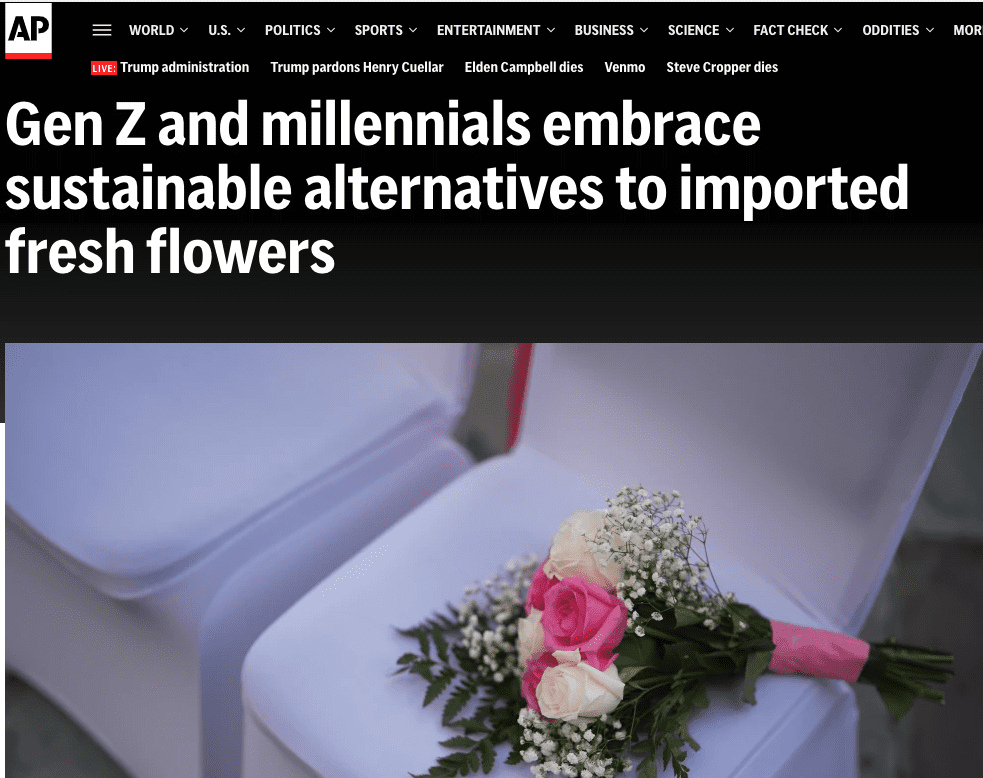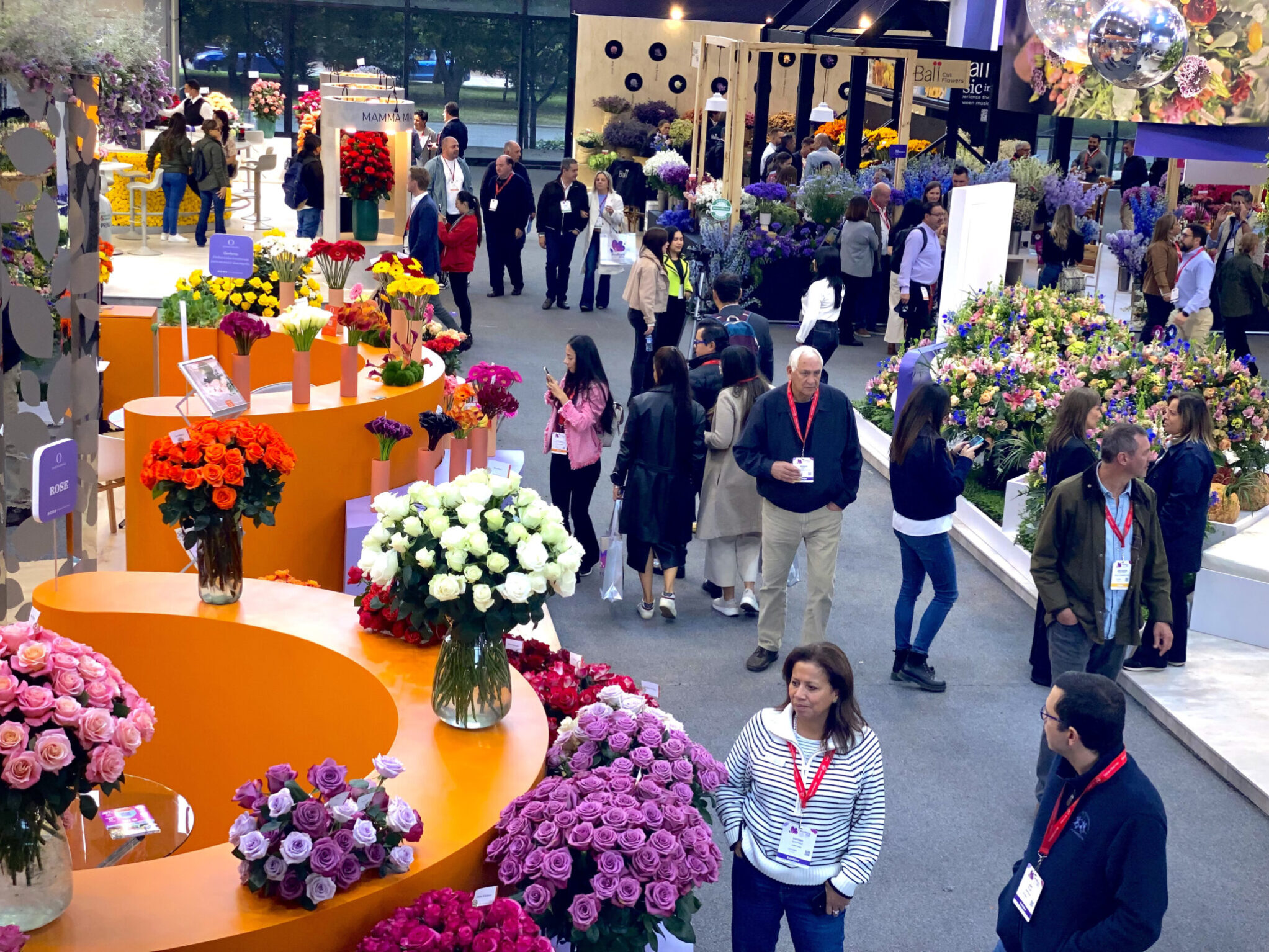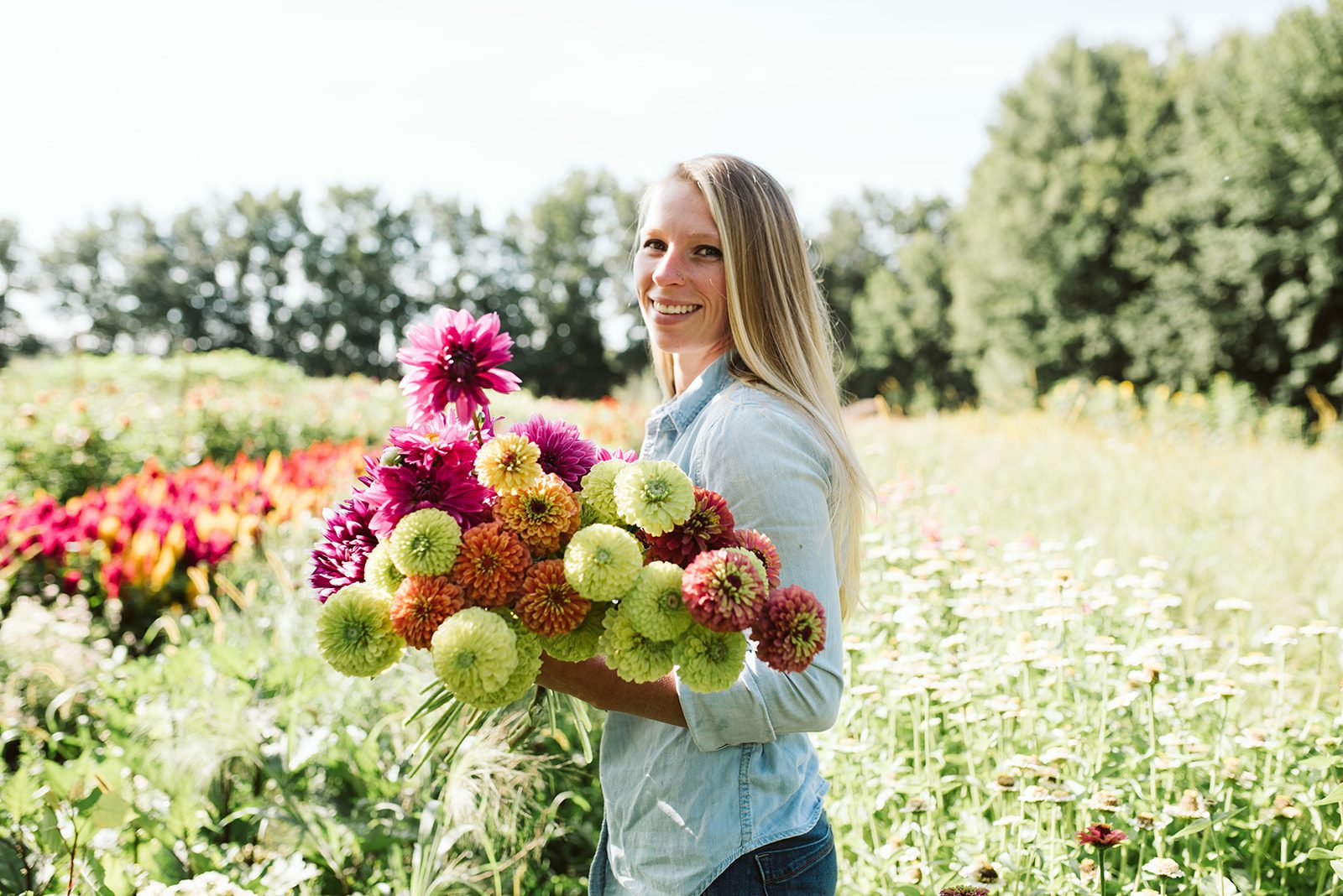
Nearly 64 percent of consumers surveyed indicated a willingness to buy flowers from retailers who composted flower waste.
A recent survey that shows consumers prefer to buy — and are willing to pay for — sustainably grown flowers from environmentally friendly florists has prompted some shop owners to consider the value of implementing and marketing sustainable practices.
The survey, facilitated by the Floral Marketing Fund, found that 61 percent of respondents were more likely to patronize environmentally friendly floral providers.
Among the 2,000 consumers surveyed in December and January, most also indicated a willingness to buy flowers from retailers who sourced local flowers (65.1 percent), composted flower waste (63.9 percent), and avoided single-use products (60.5 percent). In addition, 50 percent or more indicated a willingness to pay more for sustainable floral products.
“The numbers from this study are eye-opening and impactful to decisions in our business going forward,” says Cameron Pappas, AAF, of Norton’s Florist in Birmingham, Alabama.
Sourcing Local
The study defined “locally sourced” flowers as being grown within 100 miles of the retailer. But Dr. Coleman L. Etheredge, assistant professor of floral management at Mississippi State University and the report’s lead researcher, says florists shouldn’t focus on the distance. He encourages florists to source from origins that may appeal to different customers, including local, in state, and domestically-grown products.
Danny Sanchez, CEO of South Florals in Miami, is already doing that. He uses a lot of greenery from the Sunshine State. He also sources Florida-grown orchids. But he hasn’t been marketing it. That’s going to change. The report’s findings that consumers are seeking out shops that sell local flowers emphasizes the need to showcase some of the Florida farms he buys from.
“We’re actually in the process of showcasing farms on our website,” he says.
Andrew Fiannaca of Sparks Florist in Sparks, Nevada, says he will promote the locally-sourced angle in the shop.
“I am planning on having a local farm provide hand-tied bouquets that I can put in a segment of the cooler with a ‘locally grown’ sign,” says Fiannaca. “This has been the first time doing so, but I have a feeling it will be successful.”
Brian Kusuda of Jimmy’s Flower Shop in Ogden, Utah, says his state’s climate makes it hard to grow many types of flowers. But due to frequent customer inquiries for locally-sourced products, he began purchasing peonies this year from local farms.
“I am definitely more likely to consider sourcing locally due to this study,” says Kusuda. “Our focus will turn to promoting the flowers that are locally grown, and then striving to educate our customers on the sustainable practices that our suppliers implement in their everyday practices through social media platforms and informational posters or fliers in our stores.”
Reducing Waste
The study’s participants expressed a desire to purchase flowers from retailers who keep waste out of landfills. Respondents said they would give preference to florists who compost organic waste and those who use “sustainable, recycled, upcycled, and/or reusable materials instead of single-use products.”
Pappas already uses recycled glass products, reuses containers, and accepts customers’ used vases in his shop. They don’t market these eco-friendly offerings, but Pappas says the study has emphasized for him that they should. The data on composting has also encouraged him to reconsider how the shop handles flower waste.
“We have so much waste that could easily be composted, but we have not taken the steps yet to begin composting,” says Pappas. “These findings definitely give me more motivation to begin taking steps in this direction and build a compost pile in our parking lot.”
Likewise, Fiannaca plans to be more vocal about Sparks Florist’s use of local companies to compost green waste, and to recycle plastic and cardboard waste.
“We do not let our customers know about this, but a great marketing opportunity exists that we will be taking advantage of,” says Fiannaca. “Advertising is key.”
Raising Prices
Florists have mixed reactions about the report’s findings that at least 50 percent of consumers are willing to pay a premium of 10 percent or more at a shop that practices sustainability.
“We will likely not increase the prices for items we already offer, but we possibly can create a new line of items that have a higher markup because of this finding,” says Fiannaca.
The study, facilitated by the Floral Marketing Fund, in cooperation with the American Floral Endowment, and co-sponsored by BloomNet and Syndicate Sales, is available here. Looking for more information about the survey? Attend SAF Phoenix 2023, which will feature an all-industry session to present and discuss the findings of the survey.
Laurie Herrera is a contributing writer for the Society of American Florists.





